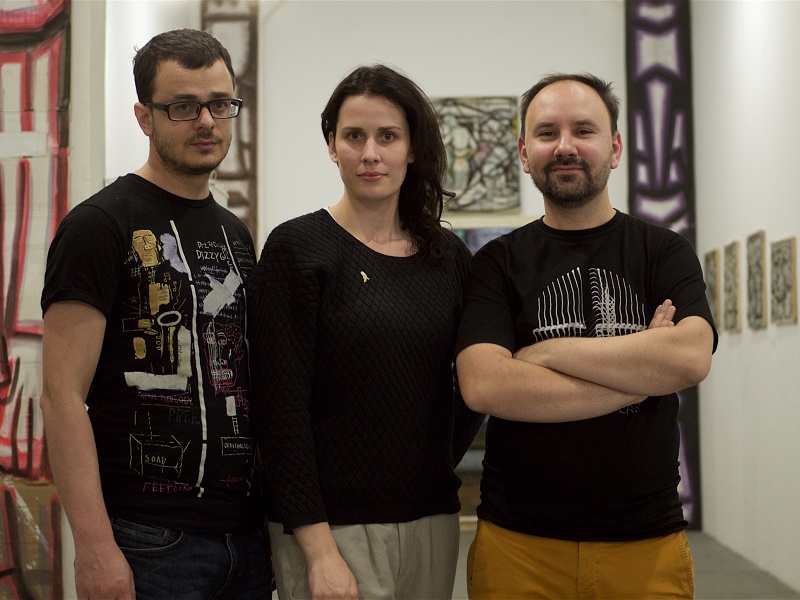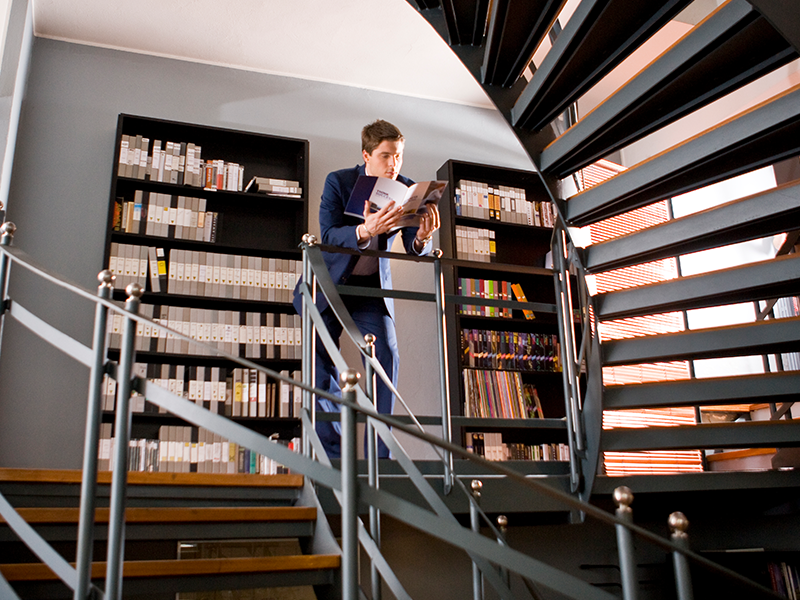
Foundamental Network: From Electronic Music Parties to Festival With Participants From 20 Countries
grownVJ, digital musician and digital artist are professions that you won’t find on the official registry of the Belarusian labour market. Without awaiting recognition, the artists of ultra-contemporary fields, organisers of musical events and art project managers have created their own community, the Foundamental Network, in the framework of which they try to help one another, work together and promote their interests.
Tell us about the Foundamental Network, how was the community created, what did joint work start with?
Yulia: In 2007 we began by organising electronic music parties. There was around 10 of us, and we simply organised a whip-round to invite some interesting musician whom we wanted to hear in Minsk.
Viktor: In 2008-2009, the work became more intensive. Initially we wanted to invite foreign musicians, but eventually we met a large number of Belarusian artists. We launched a label to publish experimental music.
In 2011, together with our Italian partner and contemporary art gallery Y Gallery in Minsk we created a very important festival for Belarus and the whole region, Live Performers Meeting, in which more than 100 video/media artists took part from 20 countries. I believe that LPM has given a great boost for our video artists.
Today Foundamental Network has two main areas of work. First, in organising musical events, such as concerts, festivals, parties. And second, it is publishing music by Belarusian artists.
What is the concept or idea of the music that you promote?
Viktor: We are primarily interested in original music, authentic things, experiments. It may be imperfect music, after all, imperfection is also beautiful in its own way. I, for example, am interested in experiments in techno music, techno artists who play classical music, or the works of classical musicians who play techno.
Pavel: Our label publishes the most diverse music, from electronic to avant-garde.
Yulia: Those who want to listen to electronic music or see at their event something unusual come to us for advice. For example, the organisers of festivals, exhibitions and ad agencies ask that we recommend a musician or a video artist for a presentation or an opening. Therefore, we are already fulfilling the role a “booking agent” for artists.
Pavel, in one of your articles you wrote that in Belarus there is no state policy with regard to creative industries, and that it was both “good and bad”. Why?
Pavel: It is bad because the sphere of creative industries cannot yet be fully operational. But it is good because the state does not interfere for now. We have the opportunity to understand who we are, what we want, and to align our interests. Today, it is important to work, establish relations, implement one’s projects and create an environment. To lobby one’s interests.
There are cases in Europe that inspire. For example, Berlin Club Commission, which is an association of Berlin-based musical promoters and club managers. There was an attempt to organise a similar initiative in Minsk but there have been no results so far. After decades of artificial Soviet solidarity, people are mistrustful of one another, and expect tricks in joint work.

What are the features of creative communities in contemporary Belarus?
Pavel: Many cultural segments that are seen as quite common and legitimate in other countries are ignored or viewed as “inferior” culture that cannot qualify for state support and broad social presentation.
This is usually representatives of creative professionals who are not taught in classical universities. For example, musicians (both electronic and rock musicians) without academic education, digital artists, designers, VJs, filmmakers, photographers, writers, performers. They are ignored here. Moreover, they are stigmatised and called “parasitic elements”. Their rights and interests are often not protected in any way.
Yulia, is what Pavel said an exception?
Yulia: Yes, this stigmatisation does exist. I know that some musicians have no work and, from the legal perspective, are “parasites”. But I don’t stigmatise them.
Was there any precedent?
Yulia: One of the musicians on our label tried to obtain a “Creative Worker Certificate”, he submitted the paperwork, talked about his music, about the multimedia installations that he creates. He plays different musical instruments, composes electronic experimental music, avant-garde works that are performed in Europe and Russia. In response, they as asked him bring the sheet music… Well, he didn’t receive the Certificate…
Pavel: This is the logic, if you’re a musician or a composer then you need sheet music.
Is it necessary for a creative person to aspire to get into this framework?
Yulia: No, you don’t need to aspire to get into the framework. The incident that I talked about just now was a creative experiment.
Yulia, you’re a lawyer. How can, in your opinion, the interest of creative professional be lobbied? Perhaps, by proposing a draft law on creative industries?
Yulia: I considered the issue of how I could influence decisions in legislature, Council of Ministers and House of Representatives. Maybe the best way is to find an MP whose views are close to our ideas and influence the situation through him or her. Or… become an MP myself.
In your view, are creative communities ready for such work? Are they aware of their interests and willing to promote them?
Pavel: Some communities emerge and disintegrate just as quickly. But there are those that have grown, gained experience, have a reputation and are capable of collaboration. People judge about Belarus by their activities. And I won’t shy away from saying that Foundamental Network is one of them.
Your community initiated several big festivals of electronic music and live video art, including the Mental Force festival that will take place in Minsk in 2017. What funds will be used to hold the festival?
Yulia: We were lucky that our partner in the organisation of the first edition of Mental Force in 2015 was Goethe-Institut in Minsk. Through their support, visits by German artists were organised. We don’t have patrons. Belarusian sponsors do not support events financially. We agree on exchange of equipment and services for advertising and increasing brand awareness through the festival name. If the sponsor is a bar or a restaurant, it can feed the guests, also in exchange for advertising.
Pavel: There are many talented artists who have nowhere to perform or who do not fit the format of clubs and 'Houses of Culture'. We can give such artists the chance to perform, release an album, give tips on how to get into a foreign festival. And perhaps, in the future, they will receive offers for collaboration.




